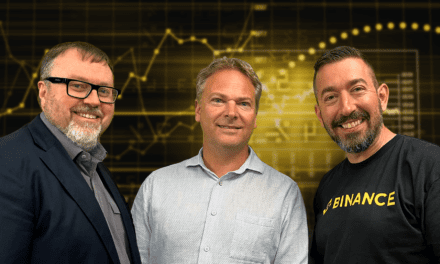Investing is a way to grow your wealth, but it can also just be a way to preserve your wealth so it’s available when you’re ready to spend it. Author and financial planner Liz Koh joins me to discuss the art of providing ‘Money for Life’.
What does retirement even mean in 2020?
As our lives get longer, and our careers span far beyond what generations before had, the lines are getting very blurry around when our retirement actually kicks off. It’s not so much that your working life has ended, it’s just going through a transition.
Retirement isn’t nearly as two dimensional as it gets credit for either. In fact, it takes many different shapes over the years where we transition from our professional life to our very last year — and each of these stages has different financial requirements.
Liz slices it up into three key stages which form a simple way to plan for the amount of money you’re going to need.
- The ‘live it up’ stage: You’re still fit enough to give life a good thrashing – just like right now, but with more time to spend on yourself.
- The ‘fix it up’ stage: You’re a little older, and perhaps not so keen to travel, but the house/hips/eyes really needs a bit of work.
- The ‘wind it down’ phase: We’re on to the final approach – here it’s about spending your last years exactly how you want.
Many believe that we’re ready for retirement when we have enough money invested that can generate sufficient returns without having to work — what I call the “nirvana of passive income”. It’s a tantalising thought, but when it sends us to the grave boasting a multi-million dollar empire that we barely touch, is that really success?
The older generation is still singing the passive income tune (it worked for them so why not?), but at some point, you need to do yourself a favour and smell the roses. Give yourself permission to spend the money you worked hard to accumulate. You can’t take it with you, your kids may not want it, and life really is short after all. Liz argues you’re better off taking the second cruise trip, in fact, while you’re at it, go ahead and tick every damn thing off your retirement bucket list as you can!
In this podcast, Liz and I dispel some of the myths around reverse equity mortgages, discuss the potential benefits of investing in a Lifetime income annuity, talk about the pros and cons to dealing with mortgages early, and help tie it all together with the example of a couple nearing retirement.
Reading:
- Reach out if you’d like a copy of Liz’s E-Book “Buckets of Money in Retirement”. Please email me on darcy.ungaro@nzeverydayinvestor.com to get your copy.
- https://www.lifetimeincome.co.nz/
- http://enrichretirement.com/
_________________________________________________________________
The NZ Everyday Investor is brought to you in partnership with Hatch. Hatch, let’s you become a shareholder in the world’s biggest companies and funds. We’re talking about Apple and Zoom, Vanguard and Blackrock.
So, if you’re listening in right now and have thought about investing in the US share markets, well, Hatch has given us a special offer just for you… they’ll give you a $20 NZD top-up when you make an initial deposit into your Hatch account of $100NZD or more.
Just go to https://hatch.as/NZEverydayInvestor to grab your top up.
__________________________________________________________________
Like what you’ve heard?
You can really help with the success of the NZ Everyday Investor by doing the following:
1- Tell your friends!
2- Write a review on Facebook, or your favourite podcast player
3- Help support the mission of our show on Patreon by contributing here
4- To catch the live episodes, please ensure you have subscribed to us on Youtube:
5- Sign up to our newsletter here
NZ Everyday Investor is on a mission to increase financial literacy and make investing more accessible for the everyday person!
Please ensure that you act independently from any of the content provided in these episodes – it should not be considered personalised financial advice for you. This means, you should either do your own research taking on board a broad range of opinions, or ideally, consult and engage an authorised financial adviser to provide guidance around your specific goals and objectives.






